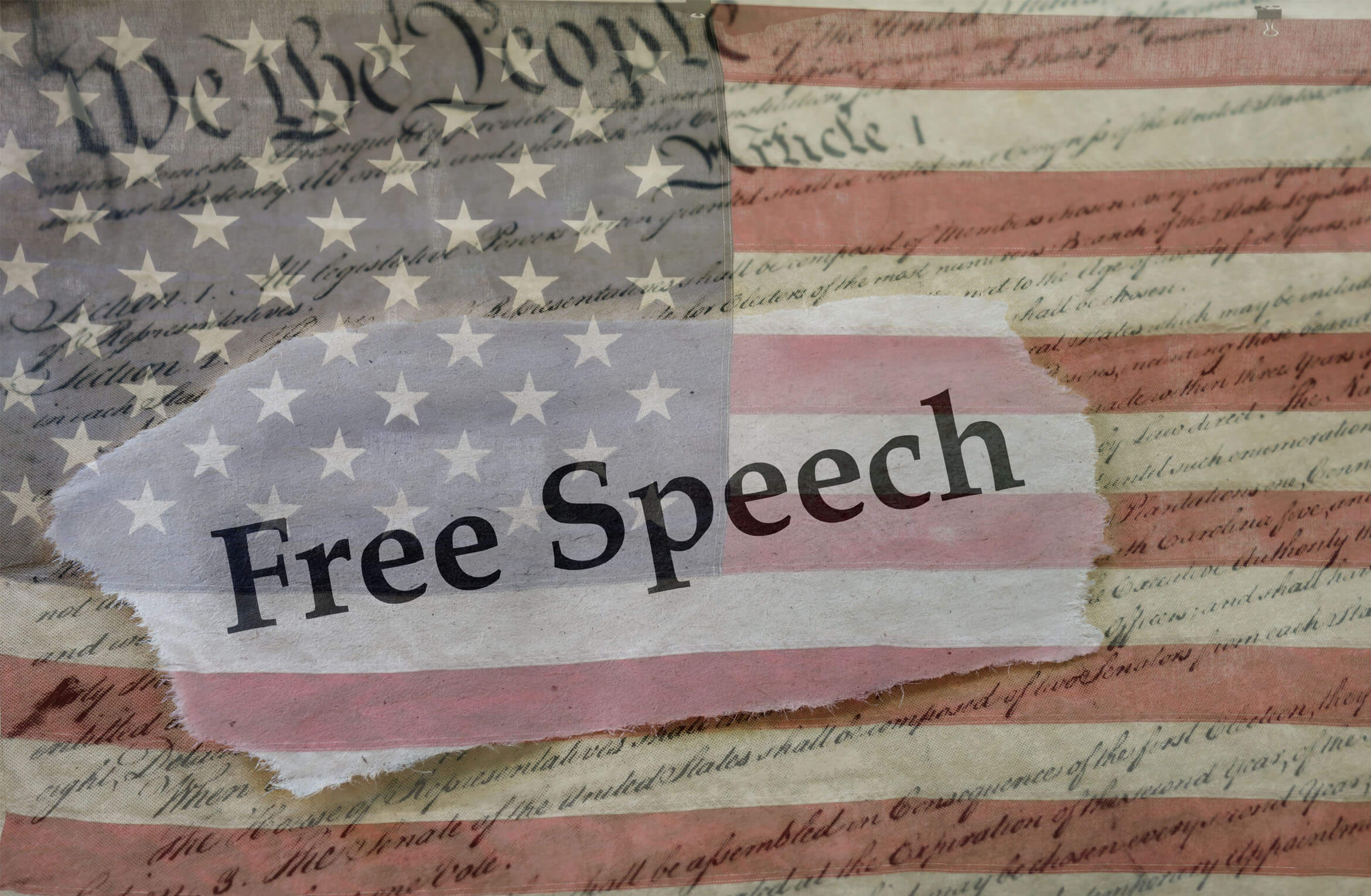
Individuals with higher cognitive abilities tend to be more supportive of freedom of speech, even for groups they dislike, according to new research that analyzed more than 40 years’ worth of data. The findings have been published in Social Psychological and Personality Science.
“Previous research on freedom of speech support examined group-specific reasons about whether freedom of speech of particular groups should be promoted or curbed. We were interested in whether certain personality traits contribute to freedom of speech support in general,” said study author Jonas De keersmaecker, a researcher at Ghent University.
The researchers analyzed 21 waves of data collected between 1974 and 2018 in the United States by the General Social Survey (GSS), the largest national public opinion survey of the United States. All of the surveys included a vocabulary test, which the researchers used as a measure of cognitive ability. The surveys also assessed attitudes towards freedom of speech for racists, militarists, homosexuals, anti-religionists, communists, and anti-American-Muslim clergymen.
Participants who scored better on the vocabulary test were more likely to be in favor of allowing members of a particular social group to give a speech in the community, for allowing books that favor the ideas of the social group in the library, and for allowing members of the social group to teach in universities, regardless of which social group was targeted.
De keersmaecker and his colleagues then conducted a similar study with another 300 Americans, with the addition of Christian fundamentalists, members of big business, and the Tea Party as targeted social groups. The participants were also asked to rate their favorability towards all the groups.
Those with higher cognitive ability tended to have more favorable views of socialists, homosexuals, and anti-religionist, while having less favorable views of militarists, big business, members of the Tea Party, and Christian fundamentalists. Despite the addition of the new conservative-leaning groups, the researchers found that cognitive ability was still positively associated with supporting freedom of speech, even after controlling for political ideology.
“People with relatively higher levels of cognitive ability more strongly support freedom of speech for social groups across the ideological spectrum, also for groups they relatively dislike,” De keersmaecker said.
In a third study, the researchers had 495 Americans complete a more thorough verbal ability test along with an assessment of intellectual humility. The participants then completed the same measures for support for freedom of speech as in the previous study. Once again, the researchers found a positive relationship between cognitive ability and supporting free speech, which was mediated by intellectual humility.
“Our results demonstrate that people with higher levels of cognitive ability support freedom of speech more strongly, and especially more ‘broadly.’ In particular, they are also more supportive of freedom of speech for groups who voice ideas that they don’t agree with,” De keersmaecker told PsyPost.
“However, the paper received some attention on social media, and some people interpreted these findings as a justification of ‘hate speech,’ or that the ‘intelligent approach’ to freedom of speech is that it needs to be absolute, without any limitations. This is not a message we want to convey, nor a conclusion that can be drawn from the paper.”
“It should be noted that our results show that those with higher cognitive ability are more broadly supportive for freedom of speech, but still differentiate between groups and their respective ideas. Indeed, for some groups, like those that are typically associated with hate speech, support for freedom of speech is still limited, but, in the interest of discussion and the value of the exchange of ideas, high cognitive ability individuals are less likely to completely silence those voices,” De keersmaecker explained.
The study — like all research — includes some limitations. It is unclear how well the results generalize outside of the United States, particularly in countries that do not have a strong tradition of protecting speech. Future research could also employ various measures of intelligence in addition to verbal ability.
The study, “Disliked but Free to Speak: Cognitive Ability Is Related to Supporting Freedom of Speech for Groups Across the Ideological Spectrum“, was authored by Jonas De keersmaecker, Dries H. Bostyn, Alain Van Hiel, and Arne Roets.
"freedom" - Google News
May 20, 2020 at 07:42AM
https://ift.tt/2ZlK1m4
Higher levels of cognitive ability linked to stronger support for freedom of speech - PsyPost
"freedom" - Google News
https://ift.tt/2VUAlgg
https://ift.tt/2VYSiKW
Bagikan Berita Ini














0 Response to "Higher levels of cognitive ability linked to stronger support for freedom of speech - PsyPost"
Post a Comment